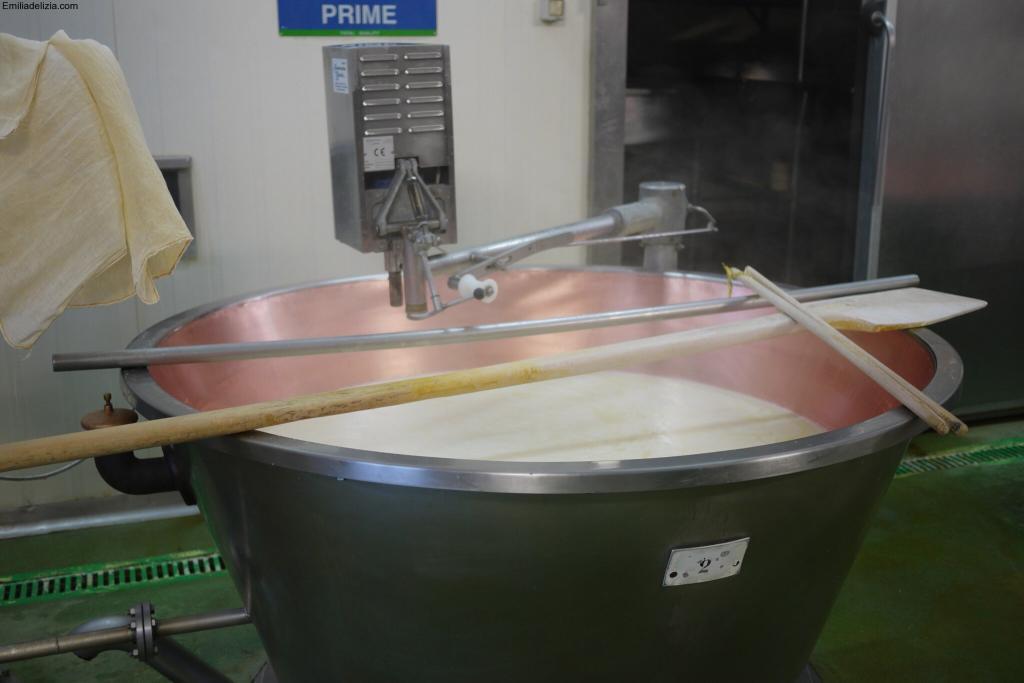Parmigiano Reggiano (Parmesan) guided visit to a cheese day.
Searching Availability...
Emilia Delizia offers detailed Parmigiano Reggiano cheese tours in Modena, Parma and Reggio Emilia. Our tour will begin early in the morning in order to catch as much as possible. Below we tried to reproduce our tour in pictures to give a better idea to people about what they will see when at the Parmesan dairy.

At the arrival at the dairy we we will see the raw milk sitting in the vats. These large containers "cauldrons" contains 1000 kg of full fat and half milk mixed together. The compound is then acidified and the rennet is added. At this point the milk will turn into a yoghurt like substance.
These are the 2 twins, one is a boy and the other is a girl. Basically these are the curds of the cheese that have been cut and left to rest. From 1000 kilos of milk we obtain 2 45 kilos wheels. Some of the weight is lost during the ageing, and therefore the final product weights approximately 37 kg.
The unformed cheese goes into the Teflon mould for one day and one night. The cheese master carefully add a weight on top of the cheese. In order to squeeze our all the liquid the moulds are then turned every couple of hours. In the evening the cheese cloth is removed and the matrix carrying the naming Parmigiano Reggiano is inserted in the mould. Telon is a new material that has replaced the hand made wooden moulds that were originally crafted by hand. httpv://youtu.be/z6M7-THZOeM In the video you can clearly see how the cheese is moved from the vat to the moulds. Our guests will be able to see the full production just meters away form the cheese being made.
The cheese goes into the metal mould for another day. These moulds have the shape of the wheel which will not required further manipulation such as the trimming of the edges. The cheese always rest on wooden shelves which allow breathing and the correct ageing.
The wheels then go to a brine bath and stay here for 3 weeks. This is an important step to make hard cheese in fact the high salinity of the water will allow residual moisture to exit thanks to natural osmosis. It is important to keep in mind that Parmesan cheese does not contain any preservative or anti fermentative, therefore it is essential to have the right amount of moisture in the wheels.
The last part of the visit will be spend in the ageing cellars. Here is the Parmigiano Reggiano is stocked on the traditional shelves for a minima of 12 months. During the visit we will learn how to recognise the real Parmesan cheese from imitation and we will discover the nutritional values of the product.
Discover more from Emilia Delizia
Subscribe to get the latest posts sent to your email.